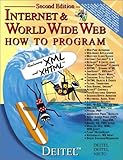Another useless Deitel book. This pile of rambling drivel is filled with some of the most horrendous writing I’ve ever seen. As with all Deitel books, it’s filled with page after page of confusing and horrendously presented graphics – some of the worst ever created. Heck, a comic book has better illustrations! f there was an award for the most incompetently written and designed tech books – the Deitels would be the winners. I’ll never understand why tech books are some of the most awful materials ever created. Avoid this nonsense at all costs. While one should not judge a book by its cover, that adage doesn’t apply to Deitel books – just look at the cover of this one – it’s a PERFECT example of what’s found inside.
Mozart Effect: Tapping the Power of Music to Heal the Body, Strengthen the Mind, and Unlock the Creative Spirit
Bad book but fun to read. The book is sadly filled with tons of pseudo-science new-age garbage. I am greatly offended that Don Campbell copyrighted the term “Mozart Effect” which he based upon real scientific research that was conducted by Gordon Shaw. Campbell’s bastardization of Shaw’s research and apparent lack of knowledge regarding classical music has further hampered much needed research into the impact that music has upon learning. The only reason I did not rate this book as “total crap” is because it does make the discerning reader ask more questions about what type of research is needed.
Keeping Mozart in Mind, Second Edition
Without question, this was a fabulous book. Gordon Shaw, a neurologist, is the one who first reported on the possible impact that Mozart’s music has upon brain functioning. While it has been quite some time since I read this book (I read the first edition), I would still highly recommend this work to anyone who is truly interested in studying the impact that music has upon learning. It needs to be noted that Gordon Shaw’s work was later “stolen” (in the figurative sense) by Don Campbell who had the audacity to copyright the term the “Mozart Effect.”
Note: This book was read several years before I created this blog (in fact, it was read before blogs existed); therefore, I have used the date of January 1, 2000 to as a generic indication as to when I finished reading it (the actual date is unknown). As the blog requires a date – I have arbitrarily assigned January 2000 as a starting point.



